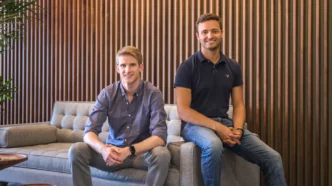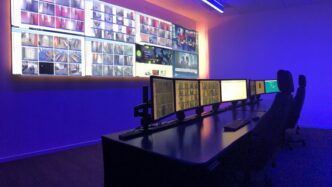Kodiak Robotics, a startup focused on self-driving trucks, is making a bold move to go public through a merger with Ares Acquisition Corporation II. The deal values the company at $2.5 billion pre-money and marks a significant milestone for the autonomous freight industry. While many rivals have folded or stalled, Kodiak is pressing forward with what it calls a practical path to market.
Backed by major institutional investors like Soros Fund Management, ARK Investments, and Ares, Kodiak has secured more than $110 million in new and follow-on financing to support the transaction. Additionally, Ares Acquisition Corporation II brings about $551 million in cash held in trust, further strengthening Kodiak’s financial position ahead of its public debut. The deal is set to close in the second half of 2025.
Unlike many AV startups that went public during the SPAC boom of 2021 without a clear revenue model, Kodiak has already started earning income. In January, the company delivered two autonomous trucks to Atlas Energy Solutions, launching its first commercial deployment. Atlas has since committed to buying up to 100 trucks for use in remote oilfield operations in the Permian Basin. These early orders provide real-world validation that Kodiak’s technology works in the field—not just in demos.
Despite this progress, the road ahead remains steep. Building out autonomous long-haul trucking is a capital-intensive challenge. Still, Kodiak’s off-road deployments offer a faster route to market, helping the company generate early momentum and potentially attract PIPE (Private Investment in Public Equity) backers once the merger closes.
CEO Don Burnette co-founded Kodiak in 2018 after building a deep resume in autonomous driving. He previously worked on Google’s self-driving car team and later co-founded Otto, a short-lived AV startup acquired by Uber. Though Otto ended up entangled in a messy legal battle with Waymo, Burnette had already exited before the scandal broke and wasn’t involved in the fallout.
That experience shaped his belief that long-haul trucking—not robo-taxis—was the best way to commercialize autonomous driving. Now, with more than 2.6 million autonomous miles driven and actual trucks on the road for paying customers, Kodiak seems better positioned than many of its peers who never made it out of testing phases.
Still, timing matters. Kodiak’s SPAC debut comes during a volatile period in global markets, with new tariffs and trade tensions disrupting investor sentiment. It also arrives just as a key rival, Aurora Innovation, is gearing up to launch its own fully driverless commercial trucking service.
Burnette remains optimistic. He believes that going public will give Kodiak the leverage it needs to deepen partnerships, broaden its customer base, and accelerate deployment across commercial trucking and public sector projects. The capital injection could help fuel Kodiak’s expansion and move it closer to profitability in a space where many others have fallen short.













